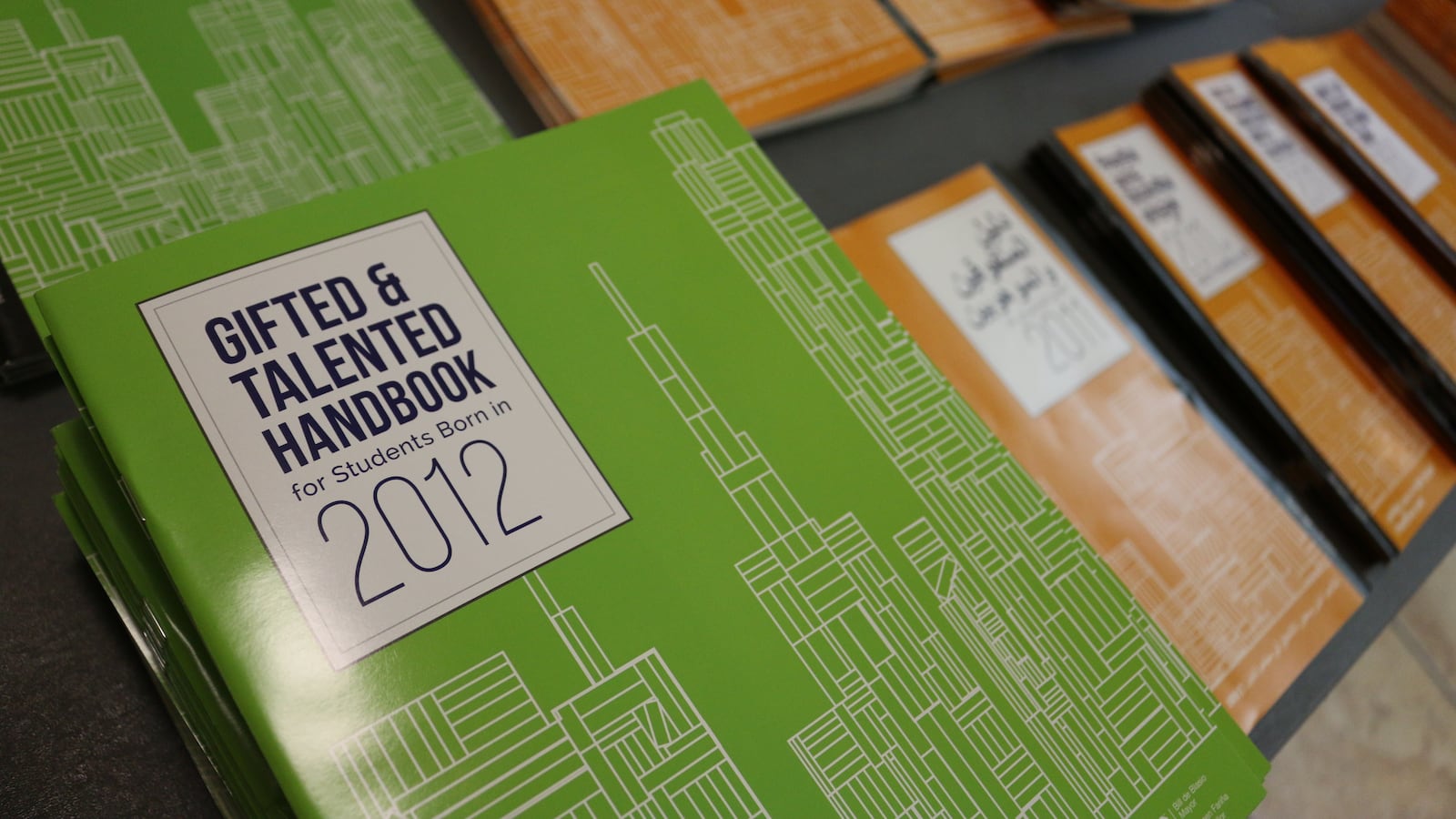New York City will expand its efforts to diversify its starkly segregated Gifted and Talented programs, education department officials announced Tuesday.
Starting next year, two more gifted programs will join 42 other schools that have already changed their admissions policies in an attempt to enroll a more diverse group of students.
P.S. 11 the William T. Harris School in Chelsea will reserve 30 percent of its open gifted seats for kindergarten and first-grade students who qualify for free- or reduced-price lunch based on their family income, are homeless or live in public housing. At TAG Young Scholars Academy, 40 percent of seats will be set-aside for kindergarten students who qualify for free or reduced-price meals.
The addition of TAG is significant: As one of only five citywide gifted schools, students need a higher score to qualify for admissions, making those schools even more coveted. It joins Brooklyn School of Inquiry, another citywide gifted program that recently became a part of the city’s diversity efforts.
Diversity in the city’s gifted programs has been a challenge in New York City. Enrollment in gifted programs is almost the reverse of the overall demographics in the school system: Black and Hispanic students make up only 27 percent of students in gifted classes, though they comprise close to 70 percent of students citywide.
The city is also increasing the number of school districts that have gifted programs starting in third grade, rather than kindergarten, and use criteria other than test scores for admissions. The new districts are: 9 in South Bronx, 19 in East New York and 29 in northeast Queens. Experts say those changes are likely to make admissions more fair, since test scores for incoming kindergartners are more likely to reflect advantages in their childhood — such as their parents’ ability to pay for test prep.
But advocates who see gifted programs as crucial pipeline to the city’s specialized schools — crown jewels of the high school system that are themselves highly segregated — have questioned the wisdom of waiting to enroll some students in gifted program, while others get an earlier start.
“Why deprive all gifted students of a chance at early advanced coursework?” asked a recent report by a taskforce convened by the Brooklyn and Bronx borough presidents. “Couldn’t additional services lessen the gap between ability and achievement at a young age?”
The department also released figures that show the number of students taking entrance exams for the coveted programs remained about steady, along with the number of kids who earned a qualifying score. About 28 percent of test-takers scored high enough to apply for a seat, down just one percentage point from the previous year.
Overall, city figures show that more than 32,500 children took the gifted tests this year. That is a slight decrease compared to last year, when about 35,000 were tested. Officials attribute the decline to an overall lower number of incoming kindergarteners.
Once again, more affluent districts saw a greater number of test takers. In District 32 in Bushwick, only 159 students took the exams and 23 earned a qualifying score. (There are more than 12,000 students overall in the district.) Meanwhile, District 3, which includes the Upper West Side, had almost 1,400 test-takers. Almost 600 qualified for gifted, and the district enrolls a total of almost 23,000 students.

